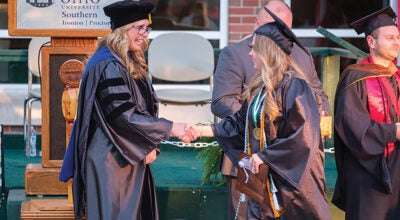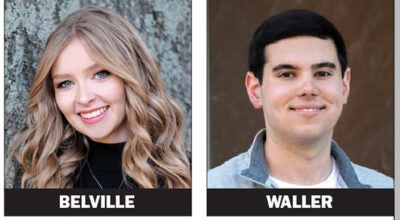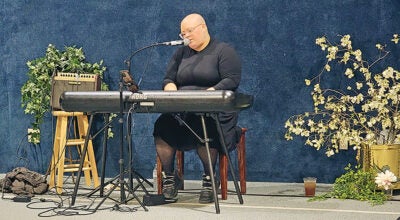Ohio Southern’s horse park earns therapeutic riding accreditation
Published 11:02 pm Saturday, March 14, 2009
IRONTON — For 5-year-old Jakob Helton, his best friend isn’t a dog, it’s a horse named Rosy. And he’s glad the weather is warming so they can spend time together again.
Jakob has cerebral palsy that affects his lower body and doctors believed he would never walk. But every week during riding season he walks from the stable to climb up on Rosy — whose ears prick up when she hears his voice — for an hour of riding therapy at the Ohio Horse Park, part of the Ohio University Southern campus.
Last year, the horse park’s Center for Therapeutic Riding earned accreditation as a premier accredited center — one of 11 accredited centers in Ohio.
Helton’s grandmother and guardian, Debbie Helton, credits the therapy with many advances Jakob has made, including contributing to his first steps.
Through word-of-mouth, the Ashland, Ky., resident heard about the Horse Park and therapeutic riding two years ago and decided to give it a try.
“I’m constantly trying to find things he can do,” Helton said, instead of dwelling on what he can’t do.
Helton described Jakob’s body posture as a C-position when he started at age 3. Jakob now sits up proudly on Rosy, issuing gentle encouragement to his equine friend as they go through their paces in the therapeutic riding barn with the help of a certified therapeutic riding instructor and three volunteers.
The gait of the horse mimics a normal walking gait in the pelvic, trunk and upper body area of a person — a rhythm that is stimulating to the muscles as well as the brain.
Jakob is one of many who benefit from therapeutic riding program at the Ohio Horse Park, the only center certified by the North American Riding for the Handicapped Association in the region.
Kelly Hall, coordinator of equine assisted activities and interim director of the Ohio Horse Park, said more than 100 clients are served each year through weekly sessions, camps or other activities.
With indoor riding facilities, riding activities continue in all but the coldest months. The clients are referred through area social service and health agencies, or like Helton, find the service through word of mouth. Therapeutic riding serves clients with learning disabilities and mental health, as well as physical needs.
And it serves students in Southern’s equine studies program who want to add a therapeutic riding certificate to their degree and become certified therapeutic riding instructors.
The equine program, which leads to an associate degree, currently enrolls about 25 students as majors. Nearly 75 percent of those students are not from the local area, opting to come to the Southern campus because of the program, Hall said.





